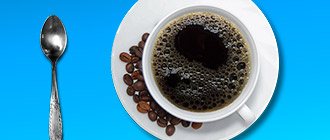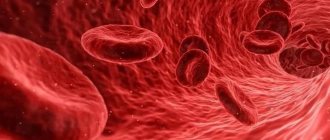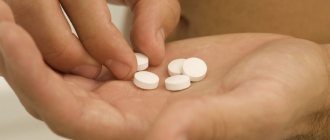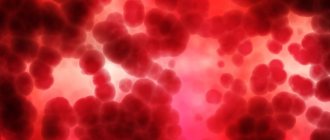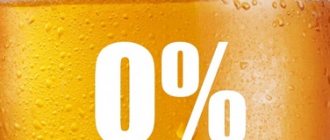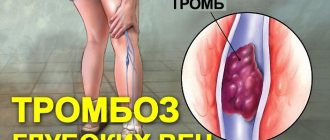Eggs are rightfully considered one of the most nutritious foods in the world. Indeed, they contain all the necessary elements for a whole chicken to grow from one cell. At the same time, eggs have a bad reputation. Because egg yolk contains a lot of cholesterol. But things are not so simple with him. The more you consume it, the less it is produced by the body. Thus, eggs in small quantities will not cause high cholesterol levels. Let's try to describe this whole process and find out: how many eggs can you eat per day without harming your health.
Valuable constituent elements
Eggs are unique in their nutritional value. The protein component of the product is a complete building material for the body’s cells and the basis for the creation of enzymes, hormones and other compounds.
Boiled or fried egg whites are not inferior to meat proteins, but are easier to digest by the intestines and absorbed in the body. Egg white contains a number of enzymes (protease, dipepsidase, diastase), as well as a small percentage of glucose.
Chicken eggs contain healthy elements:
- carotenoid lutein – maintains visual acuity, inhibits the action of free radicals and premature aging;
- amino acid tyrosine – protects the body from the effects of stress, improves cognitive abilities (attention, memory, etc.);
- lecithin – contains phospholipids, which improves liver function and helps in the production of HDL;
- lysozyme is an antibacterial intestinal enzyme involved in the regulation of intestinal microflora;
- PNFA or polyunsaturated fatty acids (linoleic, linolenic, Ω-3, Ω-6) – regulate lipid metabolism, reduce the amount of triglycerides and LDL in the blood;
- MUFA or monounsaturated fatty acids (palmitoleic and oleic) - stimulate the excretion of LDL and break down saturated fats.
Eggs contain a lot of phosphorus, which improves brain activity, potassium, which normalizes heart function, and iron, which supports hematopoietic processes. Fat-soluble vitamins included:
- retinol (A) – nourishes the skin and hair, increases the body’s regenerative abilities;
- ergocalciferol (D2) and cholecalciferol (D3) – ensure the health of the musculoskeletal system, strengthen the immune system, and inhibit the development of oncological processes;
- tocopherol (E) – increases vascular permeability, accelerates blood circulation.
The product contains a complex of B vitamins with a predominance of:
- choline (B4) – an active participant in the metabolism of fats in the liver;
- pantothenic acid (B5), which has a positive effect on the functioning of the brain, adrenal glands and central nervous system.
Fat-soluble vitamins, fatty acids and all lipids are concentrated in the yolk.
Useful recipes for atherosclerosis
Atherosclerosis is a serious disease of the arteries. Leads to irreversible processes in the entire vascular system. The development of atherosclerosis causes increased accumulation of cholesterol in the vessels. If the tests are aggravated by improper treatment, complications of the disease are inevitable. To prevent this from happening, you must adhere to the following tips:
- Green vegetables and fresh fruits help cleanse the intestines and arteries.
- Eliminate processed meats and reduce the amount of salt in food.
- Eliminate strong alcohol and tobacco from your diet.
- To speed up the replacement of “bad” cholesterol with “good” cholesterol in atherosclerosis, include quail eggs in the diet (but in reasonable proportions).
These simple tips, along with doctors’ recommendations, get rid of the disease.
In terms of the content of substances beneficial to the body, quail eggs can compete with many products. However, in everything you need to know the limit and not cross it. There is no need to self-medicate, because you cannot fool nature. Only by following these rules can you safely hope for the maximum effect from little carriers of health.
Energy value and nutrients in the composition
70-75% of the raw product consists of water. Approximately 12% each comes from proteins and fats. Carbohydrates are present in minute quantities (less than 1.5%). Poultry eggs have different energy values. The largest varieties - goose and duck - are the most nutritious. The nutrient content differs slightly. Geese are the leaders in the amount of protein, and ducks are the leader in the amount of fat.
Comparison table of nutrients and calories per 100 g
| Type and BZHU | Chicken | Duck | Turkey | Quail | Goose |
| Squirrels | 12,8 | 13,7 | 13,1 | 13,1 | 14,0 |
| Fats | 11,8 | 14,4 | 11,7 | 13,1 | 13,0 |
| Carbohydrates | 1,0 | 1,2 | 0,7 | 0,6 | 1,2 |
| Kcal | 157 | 202 | 169 | 168 | 190 |
The average weight of a chicken egg is 40-45 g, which corresponds to 63-70 kcal.
Their great virtues
- only 78 kcal,
- 6.5 grams of premium protein,
- contains almost no carbohydrates (this is a classic product for a low-carb diet),
- healthy fats: 2.3 grams
- monounsaturated fats and 0.9 grams of polyunsaturated fats,
- unhealthy saturated fat: 1.7 grams,
- cholesterol 227 mg,
- retinol (vitamin A) 98 mcg,
- vitamin D 0.9 mcg,
- riboflavin (vitamin B6) 0.24 mg,
- folate (vitamin folic acid) 26 mcg,
- vitamin B12.3 mcg,
- phosphorus 103 mg,
- iron 1.0 mg
- zinc 0.7 mg,
- iodine 27 mg,
- selenium b mcg.
Cholesterol and saturated fatty acids in yolks
Cholesterol in chicken eggs is about 420 mg per 100 g of product, which is seven times less than the total content of saturated fatty acids (palmitic, stearic, myristic, etc.). Their component is 3 g/100 g.
Saturated fatty acids (SFAs) promote the formation of low-density lipoproteins (“bad” cholesterol), which settles on the inner surface of the vascular walls. This causes the formation of cholesterol plaques. PUFAs and MUFAs contained in egg yolks break down unhealthy saturated fatty acids, but do not completely neutralize them.
Other useful properties.
Let's not forget that eggs are not only cholesterol. They also have great nutritional value and various beneficial properties. They contain large quantities of:
- lutein and zeaxanthin are antioxidants that reduce the risk of eye diseases such as cataracts, etc.
- Choline is a nutrient that plays an essential role in all cells of the body;
- animal protein – ensures the growth of muscle mass and strengthening of bone tissue;
In addition, they prolong the feeling of fullness, thereby promoting weight loss. Plus, the eggs are delicious. They are very easy to prepare. And therefore there is much more benefit from them than harm.
To sum it up: Eggs are one of the most nutritious foods in the world. They contain important substances and powerful antioxidants. Protects eyesight.
Calculation of daily norm
The safe daily intake of exogenous cholesterol for people who do not suffer from hypercholesterolemia and atherosclerosis is about 300-400 mg, saturated fatty acids - 15 g. For high cholesterol, it is recommended to reduce the portion by half. For atherosclerotic pathologies - three times.
Reference: Normal levels of cholesterol in the blood are from 3.3 mmol/l to 5.2 mmol/l.
Considering the weight of the product, it is easy to calculate how many saturated fatty acids and how much cholesterol are in an egg:
- 420*40 (45) / 100=168 (189) mg – cholesterol in 1 pc.
- 3000 * 40 (45) / 100 = 1200 (1350) mg = 1.2 (1.35) g – EFA in 1 pc.
It turns out that the maximum amount that a person with normal blood composition can afford is two eggs a day. For hypercholesterolemia - no more than one. Taking into account other foods in the daily diet that contain animal fat, this portion should be even smaller.
If the level of cholesterol in the blood is normal, there is no need to artificially reduce it. Deficiency is no less dangerous to health than excess. A complete rejection of animal products leads to a failure of biochemical processes in the body.
Cholesterol is an organic fatty alcohol that is found in the cell membrane and protects cells from negativity. Without it, sex and steroid hormones and bile acids are not produced, vitamins A, E, D are not absorbed, interneuron connections are disrupted, and pregnancy does not develop.
What not to eat if you have high cholesterol: rules for creating a diet
Nutrition is one of the main factors influencing the dynamics of an important compound in the blood. It is through food that we get about 25% of all fatty alcohol. Therefore, it is especially important to monitor the combination of products. Excluded:
- lamb, pork and other fatty meats;
- smoked meats and semi-finished products;
- fast food;
- hard margarine;
- Fried fish;
- oil creams;
- candied fruits;
- candies;
- high-calorie nuts (hazelnuts, peanuts);
- mayonnaise and fatty sauces;
- coffee;
- soda.
These are prohibited foods for high cholesterol. Their excessive consumption can lead to the formation of atherosclerotic plaques, the development of coronary heart disease, as well as obesity and cholelithiasis.
High-calorie meat is one of the first to be excluded from the diet. For example, the liver contains an abundance of harmful compounds, so if you do not want to risk your health and figure, avoid this offal. Also leading positions are occupied by duck and goose meat - a storehouse of bad cholesterol. Even when cooking chicken, it is advisable to remove the skin from the carcass to prevent excess fat from entering the body.
It is also necessary to remove sausages and sausages, store-bought sausages, as well as fast food and margarine from the diet. Donuts, chips and other unhealthy treats contain trans fats that can double the concentration of lipoproteins.
You can find out what those who are concerned about their health should not eat and what foods should be excluded if they have high cholesterol can be found in the table.
The black list included margarine and full-fat milk, butter, red meat and processed foods. The ideal option is to refuse such food. Its minimal presence in the diet is also welcome. The main thing is to carefully monitor what you eat (you can use a food diary for this).
Now let’s talk about those healthy and tasty food helpers that reduce lipoprotein levels and help avoid obesity and heart disease.
The effect of eggs on blood cholesterol levels
Do eggs raise cholesterol? Based on the composition, normalized use of the product cannot cause cardinal harm to the blood vessels of a healthy person. With hypercholesterolemia, overuse of egg yolk can accelerate pathological changes in the arteries.
Recent scientific research has proven that the problem of high cholesterol lies not in the eggs themselves, but in their improper consumption. Combining eggs with other foods is extremely important.
Depending on the combination of cholesterol with proteins, carbohydrates, fats (vegetable and animal), high-density or low-density lipoproteins are formed. The same rule applies to the unsaturated fatty acids that make up the yolk.
Cholesterol in milk
Eggs become potentially dangerous if eaten with foods rich in animal fats:
- sausages;
- butter (ghee);
- cottage cheese with a fat content of more than 5%;
- hard cheeses, processed cheeses;
- offal and meat of duck, goose, pig.
Based on this, many people's favorite breakfast - fried eggs with sausage and cheese in butter - is a cholesterol bomb. After such a dish, the level of LDL in the blood definitely increases.
According to the diet prescribed for hypercholesterolemia and atherosclerosis, the listed products are eliminated from the diet, but even with normal cholesterol levels, nutritionists do not advise combining eggs with other fats of animal origin.
When eating eggs together with fast carbohydrates, the body first processes sweets. The liver converts excess glucose into triglycerides. The result is an increase in blood sugar and cholesterol levels. The cholesterol found in a boiled egg is consumed by hepatocytes (working liver cells) as a source of bile acids.
Raw yolk is not suitable for the production of bile acids. When eggs are eaten raw, the cholesterol that is not used by the liver remains in free form. Part of it is likely to be transformed into low-density lipoproteins. By increasing the concentration of LDL, the total level of cholesterol in the blood will increase.
In addition to raw eggs: they are poorly digestible by the stomach and intestines, they may contain salmonella (pathogenic bacteria that cause acute intestinal infection), and it is possible that they contain antibiotics added to feed at poultry farms. The raw product inhibits the absorption of iron into the blood, which can cause anemia.
What Research and Guidelines Say
Scientific evidence about the dangers of cholesterol remains controversial. These individual studies may be discouraging for egg eaters. For example, a 2021 analysis of six studies found that dietary cholesterol is associated with heart disease and the risk of death from it. However, overall the studies provide mixed results, making it difficult to draw firm conclusions.
Due to the lack of evidence of the harm of cholesterol and the benefits of limiting its amount in the diet, it was “crossed out” from the list of dangerous food factors in a number of documents. The maximum amount of dietary cholesterol is no longer specified in the American Dietary Guidelines and the American Heart Association's guidelines for reducing cardiovascular risk. Previously (for example, 20 years ago) it was recommended to consume no more than 300 milligrams of cholesterol per day.
Eggs are good and bad
Eggs are a good source of quality proteins, vitamins and other bioactive substances, including carotenoids, choline and lecithin. Among other protein foods, they are included in the American Dietary Guidelines. Many people avoid eggs in their diet because some evidence suggests the cholesterol they contain may increase the risk of heart disease.
How to eat eggs correctly
The product interacts well with fiber- and vitamin-rich vegetables (tomatoes, peppers) and herbs (dill, parsley, cilantro, etc.). Boiled eggs will be healthier as an independent dish. In accordance with the latest recommendations of nutritionists, for normal absorption of protein and yolk and to prevent changes in the composition of the blood, eggs are eaten:
- boiled, not combined with anything else;
- in the form of an omelet (fried eggs) with herbs and tomatoes.
For frying, use only vegetable oil.
Help: A diet for hypercholesterolemia excludes the consumption of any fried foods, including scrambled eggs. The omelet is prepared by steaming or in the microwave.
Approximate consumption rates per week:
- for people without blood lipid disorders – up to 8 pcs.;
- for uncomplicated hypercholesterolemia – up to 4 pcs.;
- for atherosclerosis – up to 2 pcs.
In order not to exceed the daily cholesterol limit, patients following a low-cholesterol diet should take into account the total amount of fat (eggs + other animal products).
Reduced triglyceride levels
Making lifestyle changes to lower triglyceride levels can also lower cholesterol levels, but these changes do not have to include removing eggs from the diet.
To lower your triglyceride levels, reduce your calorie intake. Consuming fewer calories reduces the number of unused calories, which reduces triglyceride production.
When cutting calories, cut back on simple carbohydrates and sugars, as your body readily converts them into triglycerides.
Choose foods that contain more unsaturated fats than saturated fats. According to the American Heart Association, losing just 2 to 4.5 kg of body weight can help lower triglyceride levels. Eggs, eaten in moderation as part of a heart-healthy diet, can help you achieve these goals.
